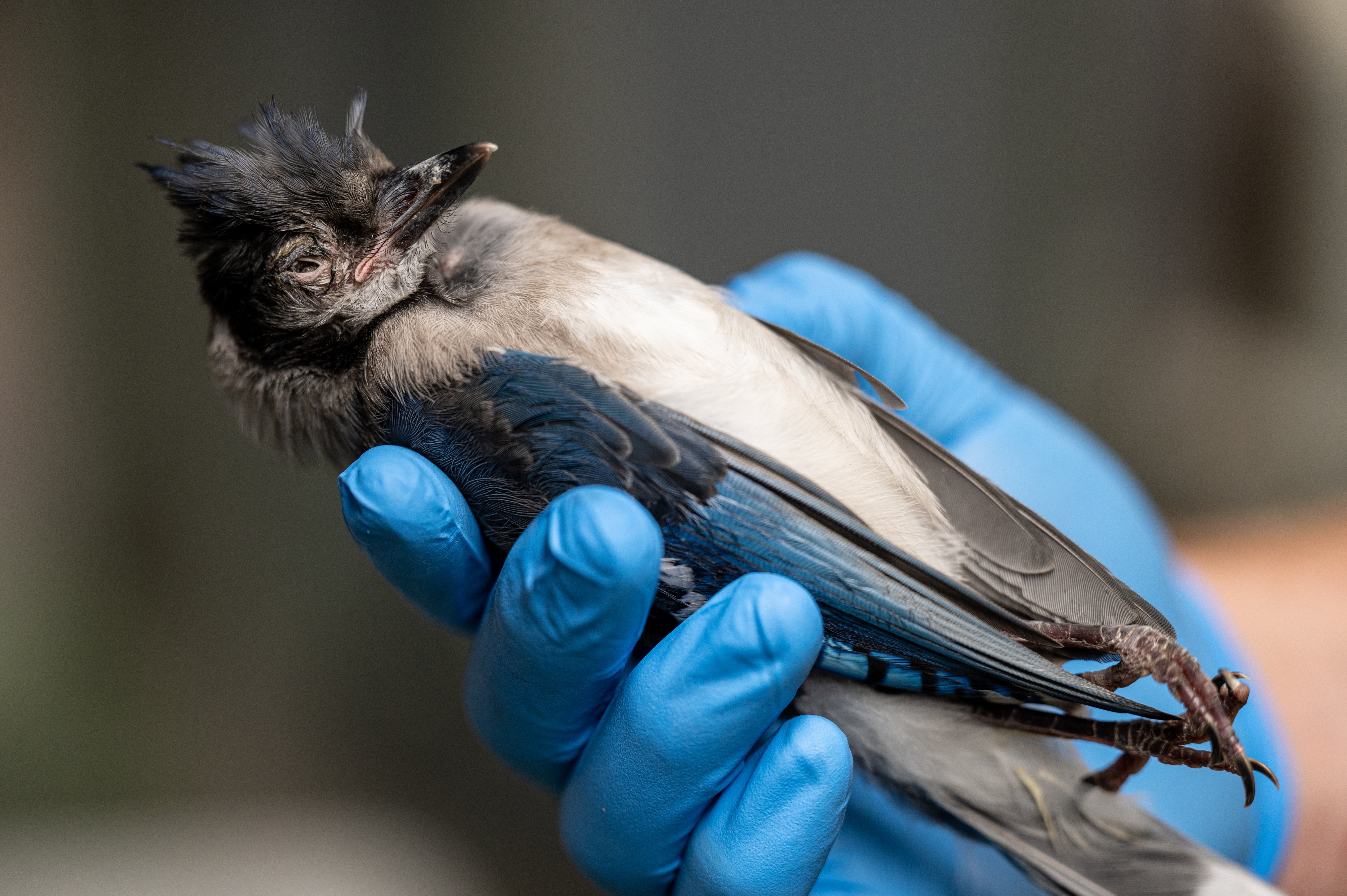Your support helps us to tell the story
From reproductive rights to climate change to Big Tech, The Independent is on the ground when the story is developing. Whether it's investigating the financials of Elon Musk's pro-Trump PAC or producing our latest documentary, 'The A Word', which shines a light on the American women fighting for reproductive rights, we know how important it is to parse out the facts from the messaging.
At such a critical moment in US history, we need reporters on the ground. Your donation allows us to keep sending journalists to speak to both sides of the story.
The Independent is trusted by Americans across the entire political spectrum. And unlike many other quality news outlets, we choose not to lock Americans out of our reporting and analysis with paywalls. We believe quality journalism should be available to everyone, paid for by those who can afford it.
Your support makes all the difference.Earlier this summer, as birds started mysteriously dying across the Washington DC region, Paul Pisano heeded the call from Virginia wildlife officials: He took down his bird-feeder.
An avid birdwatcher who lives in Arlington’s Aurora Highlands neighbourhood, the 58-year-old said he complied with the rule – an avian social distancing measure, of sorts – to protect the blue jays, grackles and finches that come to snack on birdseed on his front porch.
Two months later, no one seems to know what was causing the illness that was making the birds’ eyes swell up or release discharge. But Mr Pisano’s bird feeder is back out.
Last week, officials with the Virginia Department of Wildlife Resources gave him and others the green-light: Residents in the northern and northwestern parts of the state should feel free to set out bird-feeders again, they said, as flocks prepare to migrate south in the coming months.
“I’m glad they’re ok,” Mr Pisano said. “You’d think that by now they’d be able to pinpoint it down to certain things.”
Wildlife officials said that over the summer, a team of scientists across the East Coast has been scrambling to identify the source of the illness, which had also been giving the birds neurological issues. The reports of sick and dying birds came not only from Virginia but from the District of Columbia, Maryland, West Virginia and Kentucky.
The scientists ruled out some possible causes: bacteria, West Nile virus, an avian influenza and even coronaviruses. Toxicology tests came back negative for pesticides and heavy metals. Some people speculated that cicadas, or substances used to get rid of them, were the culprit.
But there’s been no data to back that up – at least, not yet.
Cliff Ballena, the sergeant of animal control at the Animal Welfare League of Arlington, said the shift has been stark: While in June and early July, his team would receive reports of as many as 30 sick or dead birds each day, they are back to dealing with more routine issues in the county’s avian population.
A wildlife rehabilitation official has had some success in getting rid of the bird’s eye issues with antibiotics, he said. No animal control officers or others in the region appear to have gotten sick with any related issues - all good news for Arlington and Northern Virginia more broadly, he said.
During one shift, he remembers responding to a call about one blue jay with “big bug eyes” – something he had never seen in years of working in animal control. He thought it had maybe made an unusually hard collision with a car.
Two hours later, Mr Ballena’s co-worker came across another bird in the same situation.
“First you think it might be normal,” he said, “but when you start getting third or fourth calls, that’s when it starts to bring up red flags that something else is going on.”
His team had sent birds and cicadas to get tested at a lab in Georgia, in part to see if the mysterious ailment had any connection to Brood X, which – along with the ailment – has since left the D.C. region, too.
MrPisano, who leads field trips and natural tours for the Audubon Naturalist Society in Chevy Chase, said he has seen other troubles afflict the area’s avian population: Once every few years, he would spot finches suffering from conjunctivitis or other eye problems.
But in 25 years, he said, none of those diseases had attracted the kind of attention or concern wrought this time around.
Wildlife officials said they were particularly concerned that this disease appeared to persist for weeks, reaching birds across 13 counties or cities – as far away as Shenandoah County in Virginia – yet with the first reports coming from urban areas.
“It’s nothing to the level that this one led to, in terms of all of these groups and the state government saying, ‘Take your feeders down completely,’” Mr Pisano said.
He added that because of the pandemic, more people in the region had set up bird-feeders or otherwise started paying attention to area wildlife – and thus, more people needed to change their bird-feeding behaviours.
But, according to Mr Pisano, the past year and a half of humans fighting about how to contain another deadly disease may have fed into the public’s response.
Two blocks down from him in Aurora Highlands, Mr Pisano said, one neighbour never did put away their bird feeder out front.
“Maybe they were just completely oblivious to it, or they got the word and just said, ‘Screw that,’” Mr Pisano said. “It was probably some of the denialism that you’re seeing with the pandemic, for better or worse.”
“Or for worse, I guess, actually,” he added.
The Washington Post

Join our commenting forum
Join thought-provoking conversations, follow other Independent readers and see their replies
Comments